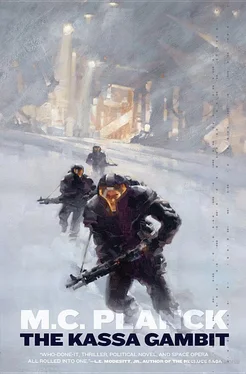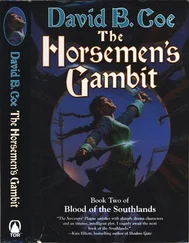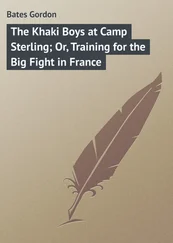The impression it always left on Prudence was that she should double-check the security settings on the Ulysses before leaving the ship unguarded.
“Are you going to let me find some real cargo?” Garcia was complaining, for good reason. He got paid a percentage of the profits. She’d left Altair with a full hold, but it had been merely contract shipments, the only thing he could arrange in eight hours. They paid a flat fee per tonne, barely enough to cover the cost of fuel. She couldn’t really compete with the big freighters for economies of scale. Instead, she made her money speculating: buying goods outright and reselling them on other worlds. Garcia was generally very good at sniffing out deals and hawking wares.
And Zanzibar was the kind of place Garcia worked best in. Not because it lived up to its amusement-park hype of exotica, but because it was so disorganized that market inefficiencies abounded. Altair had huge computers listing every commodity and service imaginable, with inventory backlogs and appointment calendars updated continuously. Zanzibar was lucky to get the current temperature right.
“Sure, Garcia. Take your time.” She’d already broadcast her news, from space, and now the sense of urgency was gone. She had spent the last two weeks running fast and hard, making four hops with no more than a day in between. At Altair she’d only delayed to refill her fuel tanks. Garcia had found them a contract shipment literally sitting on the docks.
She had cast her news out on placid worlds, like pebbles in a pond. Then she had fled before they could think to start asking hard questions. On Altair she hadn’t even dared to inform the local spaceport authorities, just the dozens of free-trader captains that conglomerated there. Fleet already knew, and would tell the rest of Altair when they felt ready to. They wouldn’t appreciate Prudence spoiling their surprise. And it didn’t matter. She’d told the people that needed to know.
The news would spread like waves, as the independent freighters rushed to take advantage of it. Any day now she expected the overlapping splash, a fellow captain dropping out of a node and breathlessly telling her of the disaster on Kassa. Such was the nature of communications that had to be carried by hand. Radio didn’t travel through nodes.
This had an unappreciated effect on social development. You could get anywhere on a planet in a few hours with a low-orbital flight. You could reach anywhere on a planet with vid comm instantly. People grew up that way, thinking of their whole world as one small place. That made the several-day trip through a node into a hurdle that most never bothered to leap. Unleapt, it was unthought-of. Nothing had done more to still-birth stellar empires than this reflexive laziness. Prudence had read stories of old Earth explorers, who had spent months or even years traveling just to make one journey, often under the most grueling circumstances. That spirit was dead, snuffed out by telecommunications and padded chairs.
It was an ironic fact that it could take longer to travel in-system from one planet to another than it did to travel through a node. But people didn’t think of it that way. In-system, you were still in contact. An hour delay on radio chatter was not the same as absolute silence. So the frontier, the wilderness, was made up of other planets and moons, asteroid belts and periodic comets. The worlds on the other side of the nodes were not distant; they were imaginary.
Prudence had been to several hundred worlds. Every place she went, they asked her about her last port of call. But no one ever asked about her first port. No one ever dug deeper than the last hop, because one hop was indistinguishable from a thousand. They were all merely someplace else.
Melvin wandered past her, a glazed look on his face. She’d taken him to a dozen worlds, and he’d gotten stoned on all of them. Zanzibar was a good world for him, too.
“Keep your comm on,” she called after him. He’d spent the last two weeks more incapacitated than usual. She was beginning to think about replacing him. He might be permanently broken.
“Can we go see the castle?” Jorgun liked Zanzibar too. He couldn’t see through the illusion. To him, it was an exotic and mysterious bazaar.
Prudence finally confronted the fact that she was the only member of her crew that didn’t like the place.
“Sure, Jor.” It would probably take Garcia days to line up something profitable, and Melvin at least that long to decompress. Prudence could stop running now, and let her crew catch their breath.
Herself included. Of all the local worlds, Zanzibar was the least likely to accede to an Altair extradition request. So it turned out she could find something attractive about Zanzibar’s slipshod security, after all.
She made herself wait three whole days, until her news had been confirmed by other captains coming out of the node. Of course, all of them had originally gotten the news from her in the first place, but that didn’t seem to occur to anyone.
Not directly from her. She saw a few ships she hadn’t talked to. They must have gotten their information secondhand. Naturally they were the loudest, and the quickest to cry “alien.” Ridiculous pictures were being passed around, claiming to be scientific projections leaked from government labs: the old standbys like skinny gray dwarves with bulging eyes and octopi-headed humanoids in flowing gowns, but also giant slavering spiders dripping venom and waving bulbous weapons in multiple legs.
But now that the subject had been publicly broached, she felt it was safe to start asking questions.
Mauree Cordial ran a dusty shop just off the spaceport grounds that catered to tourists and cranks. Real spacers who stumbled through the heavily barred doors invariably sniffed, laughed, or cursed before storming out. But plenty of them came back, late at night, to cut deals with Mauree. Maybe even in dark alleys and dank bars, as stereotypical as the fake glamour of Zanzibar. A bit of easy cash had a way of overcoming professional disgust.
Prudence squeezed her way through the aisles, looking for Mauree. The navigational difficulty was not from patrons—which, while numbering less than a dozen, nonetheless represented an occupancy record—but from the piles of junk precariously stacked to the ceiling. Mauree bought, collected, and occasionally sold alien artifacts. Since there were, in fact, no aliens, that meant Mauree’s shop was stuffed with the random detritus of a hundred worlds, odd bits of useless crap from spacers’ personal belongings, with histories culled from their imaginations, traded for a spot of drinking money or just a laugh.
Mauree bought it all, hook, line, and sinker. He’d never met a story he didn’t believe, or a spacer he didn’t trust. Prudence had first discovered the pleasant, crazy old man when she busted Garcia for selling him rocks at ten credits a kilo. Interesting rocks, smoothly rounded with a translucent sheen over assorted pungent colors, but just rocks. No, she had explained patiently, they won’t hatch into lithids and start eating pollution, no matter how long you subject them to ultraviolet rays. She had offered to carry them outside, toss them in the dumpster, and make Garcia refund his money.
Mauree had graciously declined. The rocks had stayed in one corner of the room, under an ultraviolet lamp, and remained there still. Out of sheer curiosity she had counted them on her last visit. Two had gone missing.
Prudence considered the hypothesis that they had indeed hatched and crawled off under their own power. Against this possibility she could set her personal observation of Garcia collecting them from a dome colony landfill, the waste products of some unknown and uninteresting manufacturing process. He had used them as ballast for a cargo of delicate hand-blown glass flowers. Since the petals and leaves were filled with vacuum, they tended to float entrancingly. Or inconveniently, given the context of the cargo hold. Multiple layers of bubble-wrap plastic proved insufficient, so Garcia had quite sensibly weighted the packages into stability, until the delivery was complete.
Читать дальше









